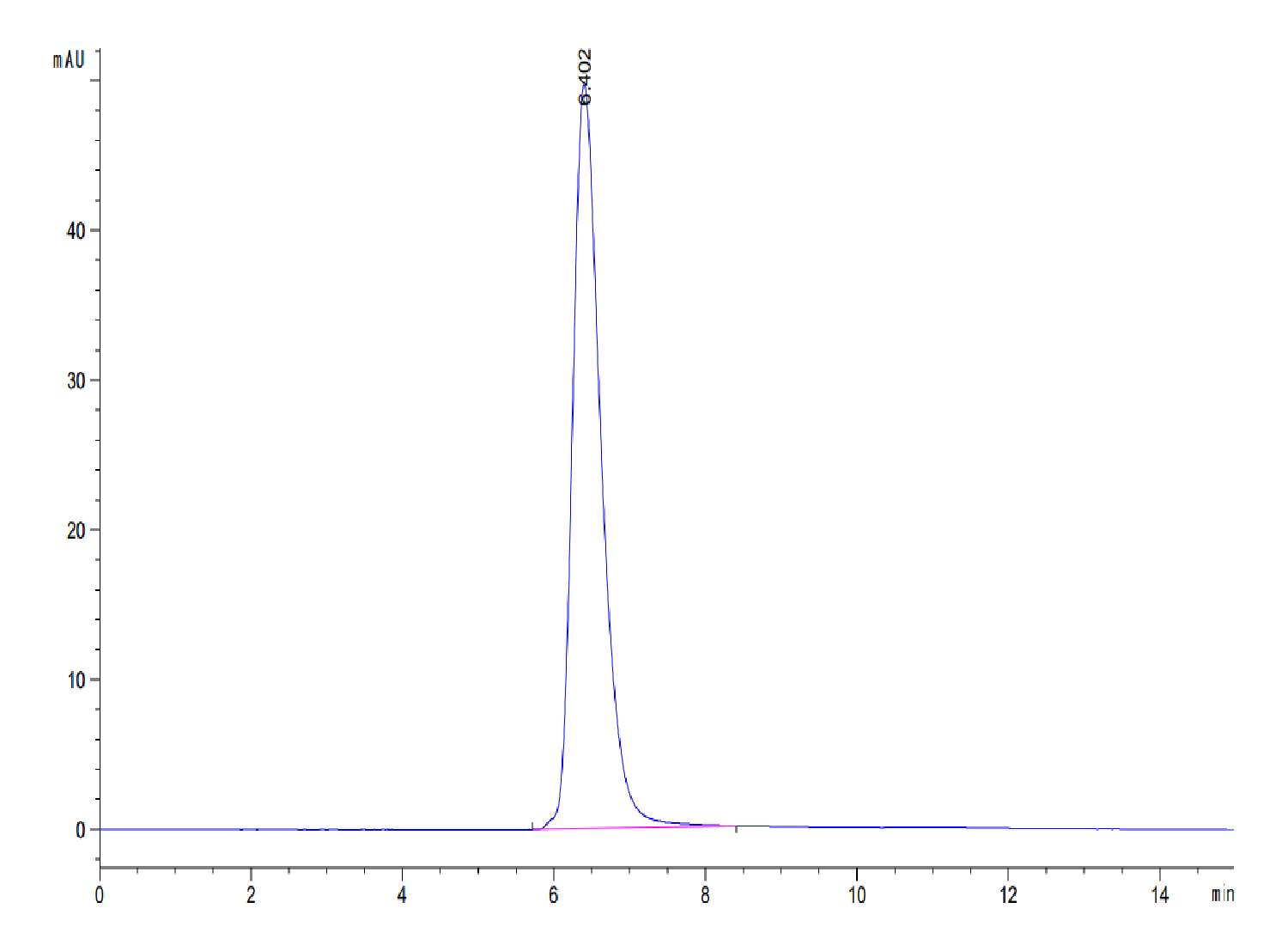|
| Human TFPI Protein (LTP11033) |
|
| LTP11033 |
|
| 100ug |
|
|
$429 In stock |
| Oestrogens influence the pathophysiology and development of hormone-sensitive cancers, such as breast cancer. Tissue factor pathway inhibitor (TFPI) is a serine protease inhibitor of the extrinsic coagulation pathway and has recently been associated with breast cancer cell development. |
| Recombinant Human TFPI Protein is expressed from Expi293 with His tag and Avi tag at the C-terminal. It contains Asp29-Lys282. |
|
| TFPI |
|
| Human |
|
| P10646-1 |
|
| Asp29-Lys282 |
|
| The protein has a predicted MW of 32.1 kDa. Due to glycosylation, the protein migrates to 40-50 kDa based on the Tris-Bis PAGE result. |
|
| 0 |
|
| C-His-Avi |
|
| Expi293 |
|
| > 95% as determined by Tris-Bis PAGE; > 95% as determined by HPLC |
|
| Less than 1EU per ug by the LAL method. |
|
| Lyophilized from 0.22 um filtered solution in PBS (pH 7.4). Normally 5% trehalose is added as a protectant before lyophilization. |
|
| Reconstituted protein stable at -80 C for 12 months, 4 C for 1 week. Use a manual defrost freezer and avoid repeated freeze-thaw cycles. |
|
| Shipped at ambient temperature. |
|
| Centrifuge tubes before opening. Reconstituting to a concentration of more than 100 ug/ml is recommended. Dissolve the lyophilized protein in distilled water. |
|
|  |